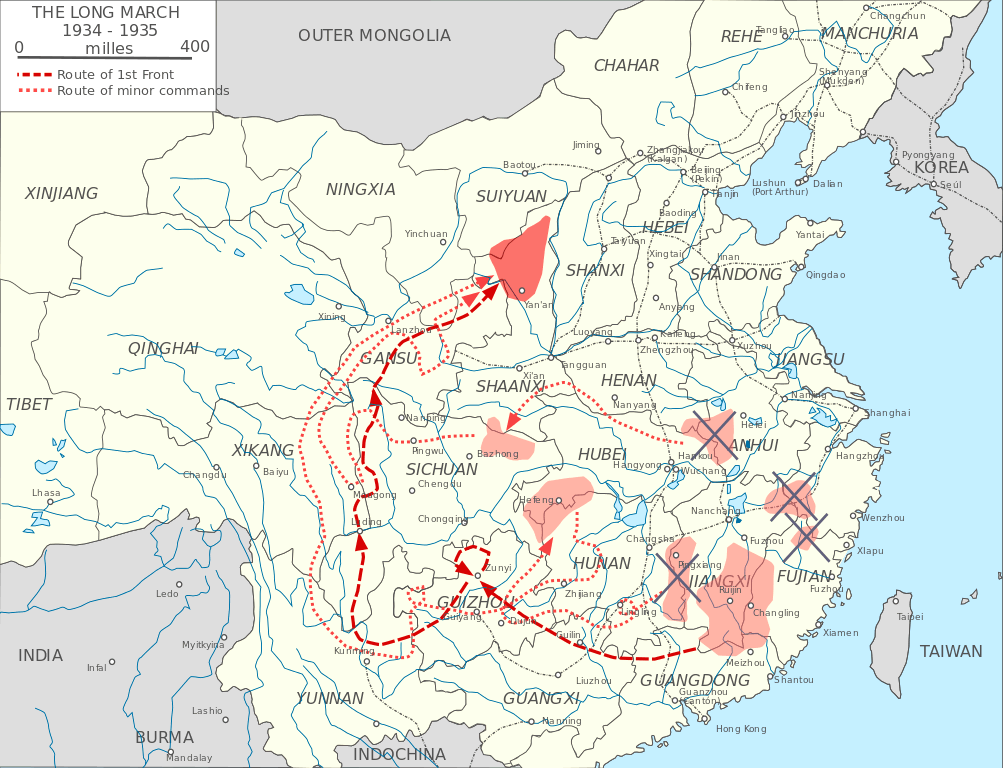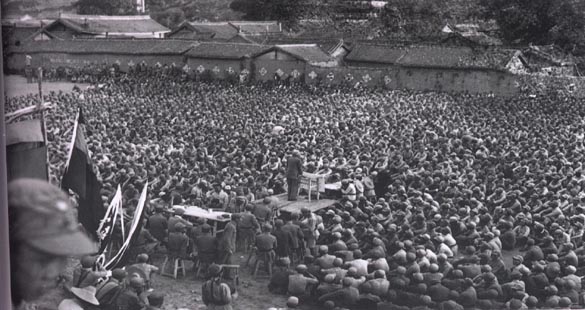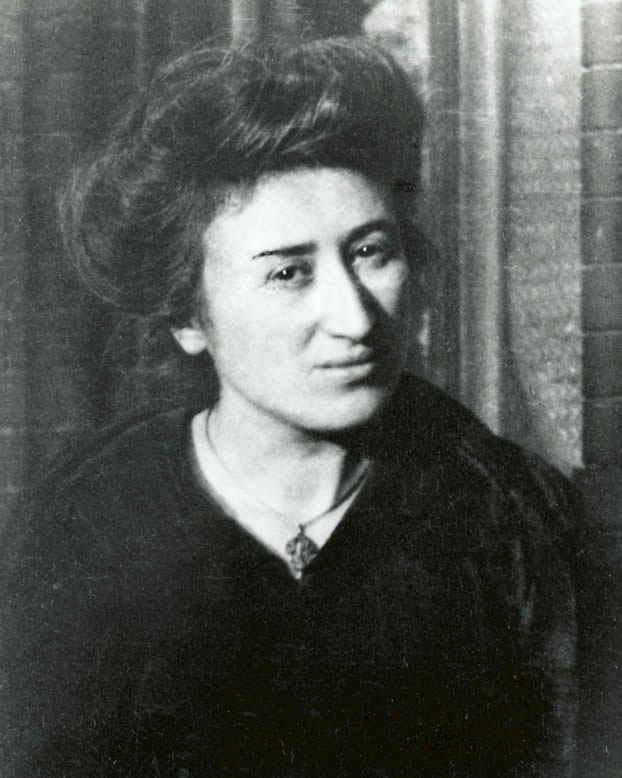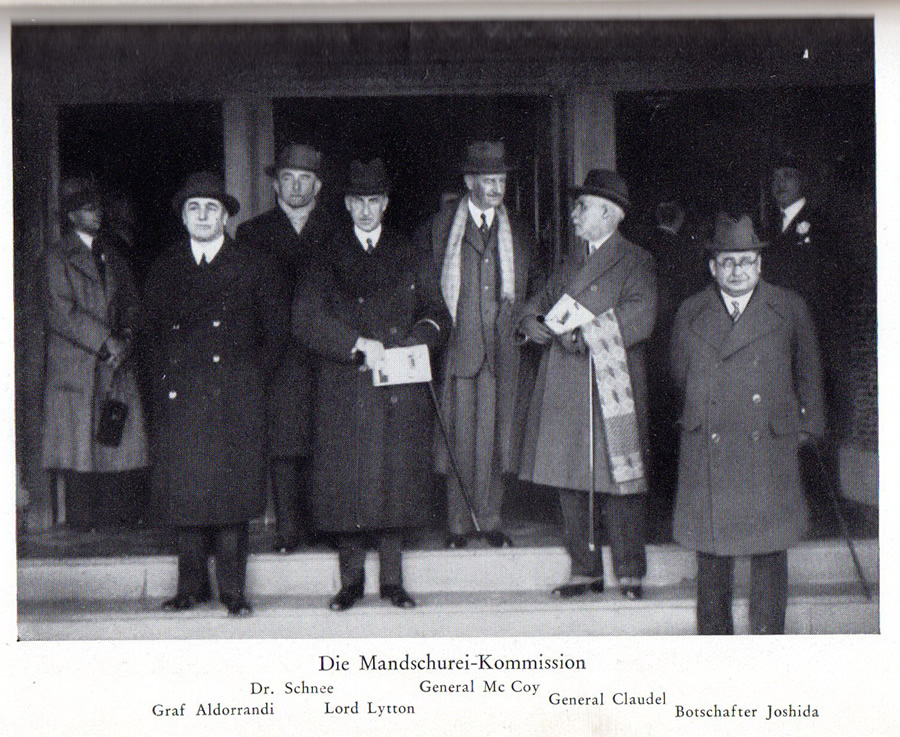 |
| Douglas MacArthur |
General Douglas MacArthur was born in Little Rock, Arkansas, on January 26, 1880, the son of Arthur MacArthur, a
Civil War hero
and military officer, and Mary Pinkney Hardy MacArthur. His early years were spent in military postings throughout the western part of the United States, but he eventually settled in Washington, D.C., following his father's move to the War Department. There he built a strong relationship with his grandfather, Arthur MacArthur, an influential judge who had access to important Washington contacts.
MacArthur's education was fairly transient and lackluster until his father enrolled him in the West Texas Military Academy, where he started to reveal talents that would take him to the U. S. Military Academy at West Point in 1898.
At West Point he established a considerable reputation, emerging as first in his class in 1903. After graduation his first service was in the Philippines, where he established a lifelong love for the country.
Following the death of his father in 1912, he took up a valuable posting in the War Department, where he came to the attention of Army Chief of Staff General
Leonard Wood
. In 1915 MacArthur was promoted to major, and within the year he became the army's first public relations officer, a post that helped him sell preparations for war to the U.S. public in the form of the Selective Service Act of 1917.
World War I established MacArthur's reputation as a striking leader of dash and courage. He was appointed brigadier general in August 1918 and became the youngest divisional commander in France, leading the 42nd Division. He was awarded 13 decorations and was cited for bravery seven times.
Following military demobilization, MacArthur maintained his rank and became the youngest superintendent in the history of the U.S. Military Academy at West Point. He modernized the curriculum and doubled the size of the academy. In 1922 he married Henrietta Louise Cromwell Brooks, a marriage that led to divorce in 1929.
In the interwar years from 1922 until 1930, MacArthur served two tours in the Philippines, where he built a strong friendship with
Philippine leader
Manuel Quezon and commanded the army's Philippine department from 1928 until 1930. He became chief of staff of the U.S. Army in 1930, when the Great Depression was in full swing.
Army strength was severely affected by cutbacks, and political protests drew MacArthur, along with George Patton and Dwight D. Eisenhower, to the unsavory task of suppressing the Bonus Army of 1932. This campaign by
World War I veterans was met by tanks and cavalry, and the action was in some quarters deemed an excessive use of force.
In 1935 MacArthur returned to the Philippines at the request of President Quezon to head the U.S. military mission and help prepare the Philippines for full independence in 1946. It was at this time that he also met and married Jean Marie Faircloth, who would make MacArthur a father at age 58. After retirement from the army in 1937, MacArthur remained in the Philippines as a military adviser.
Yet when negotiations with the Japanese broke down in 1941, President
Franklin D. Roosevelt recalled MacArthur to service with the rank of major general, and he was charged with the task of mobilizing the Philippine defenses. He built up his forces in Luzon and Mindanao and was confident in his ability to resist a Japanese attack, a fact that he reported to General George Marshall in Washington.
Immediately following
Pearl Harbor, the Japanese launched widespread attacks on the Philippines, where they quickly overcame MacArthur's defenses and destroyed his air force, much of it caught on the ground.
Although previously encouraged to do so, MacArthur failed to attack the Japanese air bases in Taiwan; the Japanese invasion met little effective resistance. Luzon fell, as did Manila, and MacArthur retreated to the Bataan Peninsula and the fortress at Corregidor.
In late February 1942 he was ordered to withdraw to Australia, leaving his surrounded army of 11,000 men under the command of General
Jonathan Wainwright
to face the Japanese. Their surrender would lead to the infamous
Bataan Death March
, which incensed all Americans and increased their desire for revenge.
MacArthur's daring escape with his wife, son, and a small group of advisers was initially by patrol boat before connecting with an aircraft that got him to Australia's Northern Territory by March 17. It was at Terowie, South Australia, that he made his now famous "
I Shall Return
" speech.
MacArthur now became supreme commander of the Allied forces in the southwest Pacific area, working with Admiral Chester Nimitz, commander in chief of the U.S. Pacific fleet, and Admiral Ernest King, commander in chief of the U.S. Navy. From offices in Brisbane, Australia, MacArthur developed an island-hopping
strategy to counter the Japanese and stop their advance across the Pacific.
 |
| MacArthur with marine amphibious landings |
By 1943, because of MacArthur's expert use of navy support and army and marine amphibious landings, as well as the benefits of major victories at Midway and at Guadalcanal, the tide turned. Importantly, New Guinea fell to the Allies in 1944, allowing MacArthur to plan the retaking of the Philippines.
The destruction of the Japanese navy at Leyte was the largest naval battle in history and made the successful landings possible while ending all hope that the Japanese could counter. U.S. troops advanced across the Philippines and moved on to attack Luzon in January 1945. Manila was taken after brutal resistance by Japanese troops under the command of General Yamashita on March 4, 1945.
From headquarters now established in Manila, MacArthur planned the final attacks upon Japan, including a 1,300-ship invasion of Okinawa, which was but 350 miles from mainland Japan, on April 1, 1945.
The struggle for Okinawa
was extremely costly, resulting in 12,520 U.S. and 110,000 Japanese killed and the introduction of major kamikaze suicide raids on U.S. shipping.
The heavy cost extracted from this invasion made an invasion of the Japanese main islands a daunting prospect. The atomic bomb strategy was introduced to quicken the end of the war and deliver Japan's unconditional surrender.
On August 6, 1945, an atomic bomb was dropped on Hiroshima, which did not produce the desired capitulation. On August 9 a second bomb was dropped on Nagasaki. The Japanese accepted terms on August 10. Their surrender ended
World War II in the Pacific.
MacArthur received the formal surrender onboard the USS Missouri on September 2, 1945, and President
Harry S. Truman appointed him head of the Allied occupation of Japan. Japan was a defeated and devastated country, and MacArthur worked to salvage and reconstruct the country, including the creation of a democratic constitution that would ensure a peaceful Japan.
MacArthur turned over authority in 1949 to a new Japanese government, which preserved the emperor but in a symbolic role. MacArthur remained in Japan until relieved by President Truman in April 1951.
The North Korean attack on South Korea in 1950 changed the course of Korean history, as it did MacArthur's own. MacArthur assumed command of a
United Nations–sanctioned coalition of Allies authorized to drive out the North Koreans.
He saved a desperate situation by organizing a brilliant rearguard amphibious landing at Inchon, which outflanked and destroyed much of the North Korean army, whose remnants hastily retreated back across the 38th parallel and then toward the Chinese border.
The Chinese warned that they would become involved if their border was threatened. From his position of strength, MacArthur was dismissive of the Chinese threat until on October 25, 1950, the Chinese crossed the Yalu River and drove the Allies back.
MacArthur wanted to now attack the Chinese with overwhelming force, including nuclear weapons, but President Truman feared this would involve the
Soviet Union and create the framework for a new world war. MacArthur's relations with Truman broke down. By March 1951 the prewar boundary position along the 38th parallel was established.
This development encouraged Truman to ask for a cease-fire and negotiations to end the conflict. While Truman tried to secure such talks, MacArthur continued to threaten the Chinese and undercut Truman's position as commander in chief. The president responded on April 11, 1951, by relieving McArthur of his command.
Truman's decision, because of MacArthur's extreme popularity and influence, was not well received by many Americans, particularly those desiring a stronger cold war response to aggressive communist expansion.
Upon his return to the United States, his first time on the mainland in 11 years, MacArthur was invited to address Congress. It was here that he gave a powerful performance, where he emotionally and famously ended his speech with the declaration, "Old soldiers never die, they just fade away."
MacArthur's considerable popular acclaim led to the belief that he would be a 1952 Republican challenger for the presidency, or at least be the vice presidential candidate on a Robert Taft ticket.
His political views and a Senate investigation of his dismissal helped cool some of this enthusiasm. The successful emergence of General Dwight David Eisenhower as the Republican presidential candidate ended MacArthur's involvement in national politics.
After leaving the army, MacArthur lived in New York and became chairman of the board at the Remington Rand Corporation. He did offer military advice to presidents, if requested, and did so for
John F. Kennedy, when his advice was critical of the Pentagon policies of the day. He also managed a return visit in 1961 to the Philippines, where he received further accolades, including the naming of the Pan-Philippine Highway as MacArthur Highway in his honor.
General Douglas MacArthur was one of the most highly decorated soldiers in U.S. history, holding numerous citations as well as the highest award, the Medal of Honor. He died at Walter Reed Hospital in Washington on April 5, 1964.


























